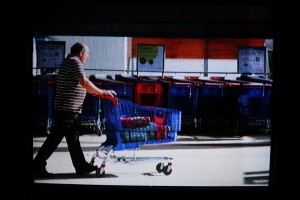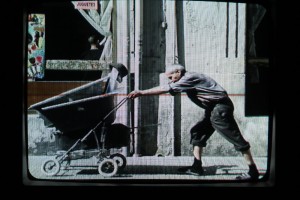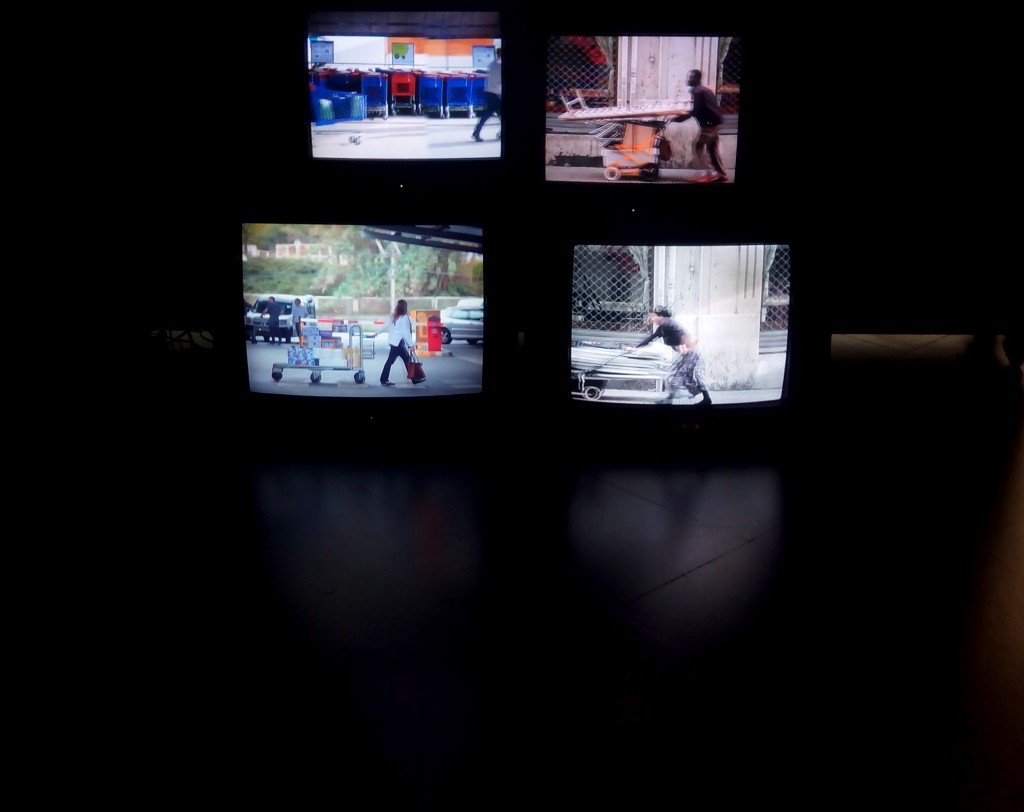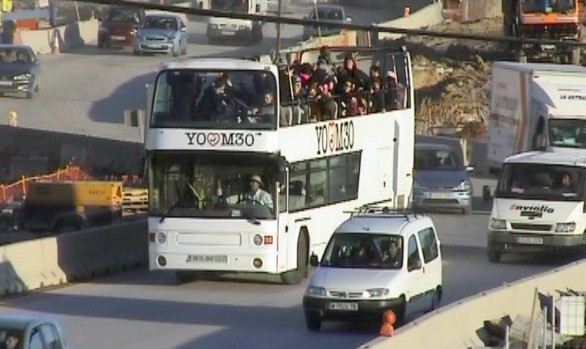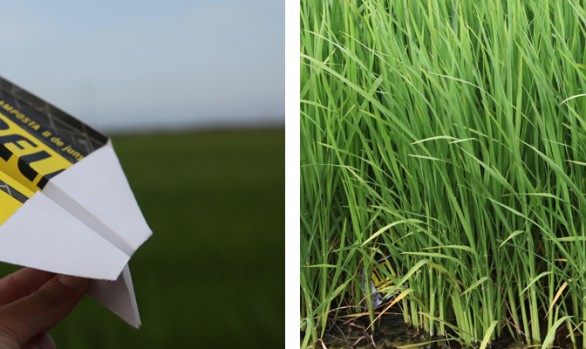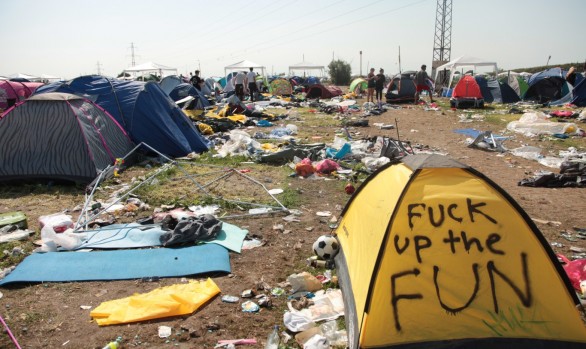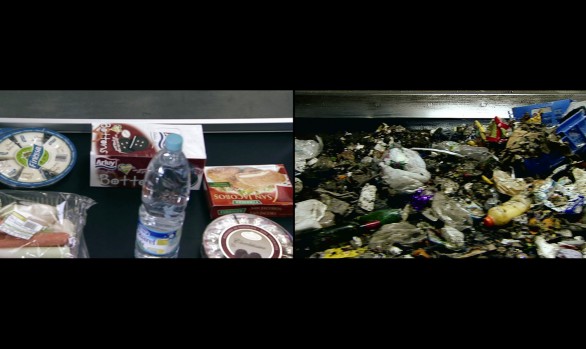Chainwork Reverted
VideoChainwork Reverted is an audiovisual project on consumption, waste and recycling. The shopping cart is chosen as symbol of consumption that relates buyers and recyclers, the transport of newly-purchased products and materials salvaged from trash.
The consumer is a key part in this mechanism, which extends the production chain to the landfill. Consumption and waste are part of the same process. In the video-installation Chainwork (trabajo en cadena) we presented this topic displaying side by side supermarket products and trash at the waste separation plant.
Chainwork Reverted researches the consumption/waste relationship by including its main actors and showing how the recyclers reverse the process to a certain extent. The video-installation shows how consumers transport their purchases in their shopping carts and how waste pickers carry the materials rescued from waste.
Although recycling is just another mechanism of industry and society to produce and consume more with a clean conscience, waste pickers play a key role in recovering value from waste. They perform a task nobody else wants to do. Even so, as they work with what society throws away, in other words, waste, they are often mistreated and undervalued. This project aims to highlight the work performed by these informal workers, so rarely recognized.
Context
The project was developed thanks to a production grant by Fundación Bilbao Arte during 2015.
The web with images of the process of production can be accesed at basurama.org/chainwork/.
Collaborators:
Sound: Alberto de la Hoz.
Video edition: Marcus Carús von der Ehe.
Support filming: Sara Sánchez Andújar.
Talk about the process:
You can watch the the talk about Chainwork Reverted (it starts in minute 1:01:00):

